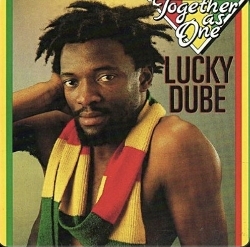Lucky Dube, the renowned South African reggae artist, continues to resonate deeply with listeners through his poignant lyrics and compelling music. His song “War and Crime,” from the 1989 album “Prisoner,” stands as a timeless critique of societal conflicts and racial discrimination, offering a powerful message of unity and peace.
“War and Crime” addresses the universal struggle for freedom and the pervasive confusion about right and wrong. The song’s verses poignantly highlight how different racial and ethnic groups blame one another for societal issues:
> “The black man say it’s the white man / The white man say it’s the black man / Indians say it’s the coloureds / Coloureds say it’s everyone.”
These lines underscore the cyclical blame game that perpetuates division and misunderstanding. Dube’s lyrics suggest that the root of these conflicts is a lack of truthful communication between generations, as reflected in the lines:
> “Your mother didn’t tell you the truth / ‘Cause my father didn’t tell me the truth.”
The chorus, a call to action, is both a plea and a command:
> “When it started, you and I were not there so / Why don’t we bury down apartheid / Fight down war and crime / Racial discrimination / Tribal discrimination.”
This refrain reinforces the idea that contemporary generations must take responsibility for ending historical injustices, even if they were not present when these issues began.
Musically, “War and Crime” is rooted in the reggae tradition, featuring a steady rhythm and a melodic bass line that supports Dube’s earnest vocals. The song’s arrangement is straightforward yet powerful, allowing the lyrical content to take center stage. The repetitive structure of the chorus emphasizes the urgency and importance of the message.
“War and Crime” is more than just a song; it’s a manifesto for peace and equality. Dube’s appeal to “bury down apartheid” and combat various forms of discrimination is a direct response to the political climate of his time. However, the song’s themes remain relevant today, as racial and tribal tensions continue to exist globally.
Dube’s refusal to take sides in the blame game is particularly noteworthy. He does not accuse any one group of being solely responsible for societal problems. Instead, he calls for collective responsibility and action, highlighting the shared humanity of all people.
Lucky Dube’s “War and Crime” is a masterful blend of reggae rhythms and socially conscious lyrics. Its enduring relevance lies in its universal appeal to fight against discrimination and strive for a more just world. As Dube eloquently puts it, understanding and addressing the complexities of our shared history is essential in creating a future free from the cycles of war and crime.
“War and Crime” remains a testament to Dube’s legacy as a musician who used his art to challenge the status quo and inspire change. This song is not just a reflection of past struggles but a clarion call for ongoing efforts towards global peace and unity.

